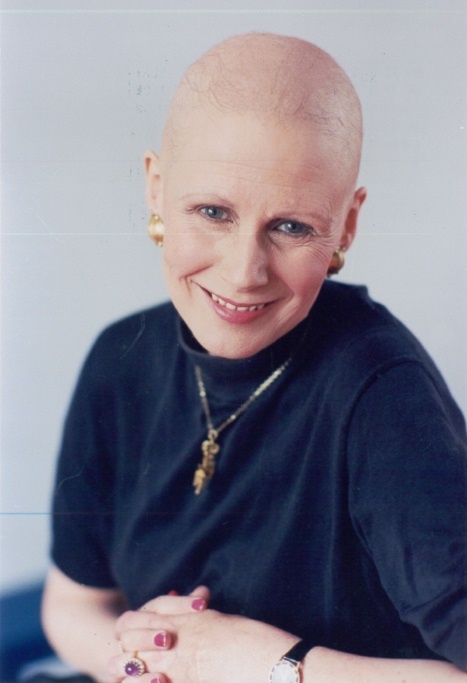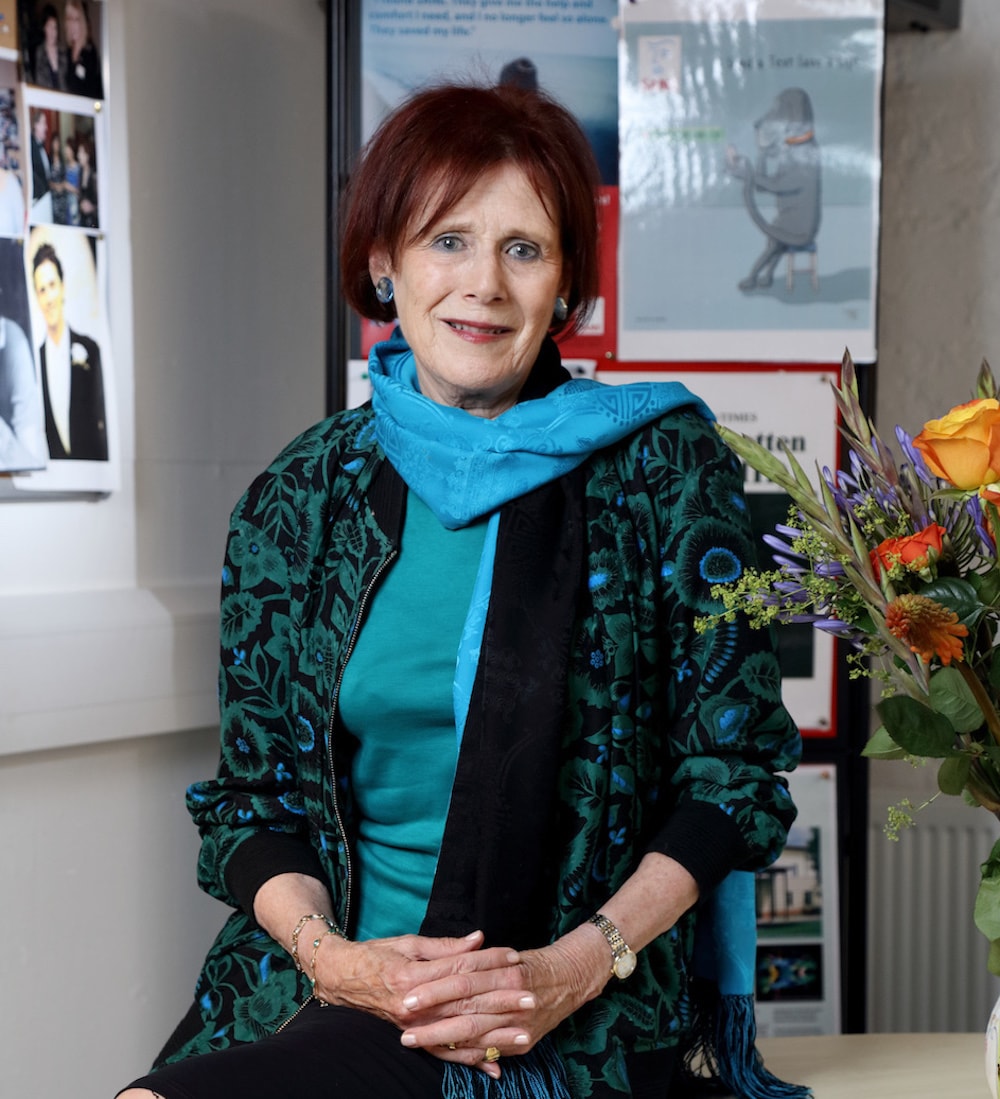Marjorie Wallace CBE was a celebrated journalist involved in some of the greatest scoops in British journalism. It was never her intention to found the independent mental health charity, SANE. Rather, the charity founded her.
In part one of Ms Wallace’s interview with Happiful, she discusses the creation of SANE, the current crisis facing the UK’s mental health services, and the “fear, secrecy and shame” that still surrounds mental illness.
Now we talk the tricky art of fundraising, the suffering that comes with empathy, and her “two-edged” gift for reading people’s feelings.

The late Lord Snowdon presents Marjorie with the Snowdon Special Award, 1988
Part of your job is fundraising, which you’ve described as ‘humiliating’. But you’re very good at it!
Fundraising is the least favourite part of my job, but I’ve been doing it for 30 years and more. You have to face being ignored. You have to face going to a dinner party and people avoiding sitting next to you just in case you ask them for money. But you also learn that if you want to raise money, then you need fresh ideas. I always try to do it with a lightness of touch. I back away immediately if a person feels they’re being plagued. You learn the balance between wanting to raise funds and not making the people who don’t give those funds feel embarrassed.
But how do funds affect Mrs Miggins in Southport? That’s what I want to know.
That’s exactly how I look at it. Every time I do a broadcast, I think of people like a Mrs Miggins in Southport. There has to be a lot more understanding, patience, and just common sense. People need to care.
"I was born with this kind of imagination to know what people feel, and I think that has made it harder for my own life"
I feel on a very human level that we all understand psychosis, because when the lights go out at night, it’s just us and our mind.
But when the light goes out of someone’s life and it isn’t just for a night – it’s night on night, and they don’t have anywhere to go, and they don’t have someone coming in to switch that light back on again, that’s the gap we need to fill. That’s why I go on working. I’m very happy when I come by the SANE office in the evening and see the lights on in the helpline room! I think, well, there’s somebody here, the lights are on at least for a few people who get through to the marvellous volunteers who take these calls.

Marjorie after chemotherapy, 1994
Is it very important to you that SANE, as a charity, remains independent?
We like to be an independent voice. If you’re dealing with individual people whose lives have been shattered, then you have to be able to speak independently of government.
You once said – it was many years ago – that you must atone for your life. Surely now you have atoned?
I don’t really go in for what you call religious guilt, but I always had this slightly Victorian belief in redemption. I always thought there must be some way of redeeming life, of making sense of the random suffering of life, or help make sense of it. I would have liked to achieve that sort of redemption.
You’re still a very creative soul. Do you believe art is suffering?
Ah, that’s a hard one! I think to create anything is very painful. I think there has to have been some pain in producing anything, even a pop song. Some people are lucky, they have happy genes, sunshine personalities, and they can somehow ride through life without feeling a great deal of pain. I know some people like that. I think, well, they’re terrible lucky but they haven’t really lived. They have smaller spectrums of emotions.
Yes, happiness isn’t the main goal.
You can’t just reach happiness, because that concept is really not made for the human condition. And this “Happy Index” thing, I think it’s a manufactured concept.
A businesswoman said of my magazine, ‘It must be so annoying to be always happy in your office!’ But that’s not us.
I think happy is lovely if, behind the happiness, is the fact that it’s full of pain as well. Happiness is full of joy and full of pain, and full of light and full of shade.
“I’ve made terrible mistakes in my own life, yet in my professional life I have a slightly uncanny ability to read people’s feelings and agendas. I’m always anticipating”
How good are you at reading people?
[Pause] I think I have almost a sort of... Well, it’s uncomfortable for me. I see too clearly what people are thinking, what they’re feeling, and the con icts they’re in.
Can you take the temperature of a room very quickly?
Yes, I would agree with that. If I walk into the room, I know immediately how this is going to turn out. It’s awfully boastful, but when I feel something strongly, I’m rarely wrong. I’ve made terrible mistakes in my own life – my love life – yet in my professional life, I have a slightly uncanny ability to read people’s feelings and agendas. I’m always anticipating. In a way I’d rather not. It’s been a bit of a burden in my life.
Photography | Jesper Mattias
Have you suffered for it, Marjorie?
I’ve suffered from having too much empathy. My instinct is very sharp, but so is my empathy, too much sometimes. A few times, I feel that my empathy has been wasted on people who didn’t deserve it.
It has taken me down some quite painful paths in my life. I should have been more careful and set more boundaries. I was born with this kind of imagination to know what people feel, and I think that has made it harder for my own life.
The upside, of course, is that you see the reality quicker than most people.
I get to the essence quite quickly. I can articulate things in a way that makes people see the situation very clearly. It’s a two-edged gift or curse, but it’s helped me to understand how terrible it has been for people with mental illness.
For more information or to donate online, visit sane.org.uk



Comments